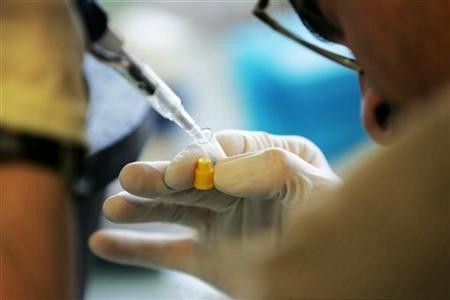Sperm Count Declines Worlwide, Western Men See Record Low Fertility

Sperm count among Western men has decreased by 50 percent in less than 40 years, researchers found.
The study, published in Human Reproduction Update on Tuesday, found sperm concentration especially decreased among men in North America, Europe and Australia. The study, conducted by the Hebrew University-Hadassah Braun School of Public Health and Community Medicine along with the Icahn School of Medicine at Mount Sinai, points to “impaired” male health and decreasing fertility, researchers said.
Read: These States Are The Rudest When Chatting With Customer Service Representatives
Researchers screened 7,500 studies and analyzed 185 studies between 1973 and 2011. In that time frame, sperm concentration declined by 52.4 percent and 59.3 percent among men from North America, Europe, Australia and New Zealand. That means sperm count has decreased by 1.4 percent a year on average among Western men.
The study found no significant decline among men in South America, Asia and Africa. However, it’s worth noting there have been fewer studies in those locations.
Researchers say the decline in sperm concentration is continuing, which isn’t good news for humanity.
"Given the importance of sperm counts for male fertility and human health, this study is an urgent wake-up call for researchers and health authorities around the world to investigate the causes of the sharp ongoing drop in sperm count, with the goal of prevention," said Dr. Hagai Levine from the Hebrew University who led the study.
Read: Opioid Crisis: How The US Can Contain And Reverse The Epidemic
The study found that men with concentration of sperm below the threshold counts for subfertility or infertility is increasing.
"Decreasing sperm count has been of great concern since it was first reported twenty-five years ago,” said Dr. Shanna H. Swan from the Icahn School of Medicine. “This definitive study shows, for the first time, that this decline is strong and continuing.
The recent study suggests our modern environment may have an impact to male health. The study did not dive into why sperm count is decreasing, but Swan said chemicals might play a part in the decline of sperm concentration among Western men.
“The fact that the decline is seen in Western countries strongly suggests that chemicals in commerce are playing a causal role in this trend," said Swan.
In the study, researchers pointed out that decline in sperm count has been previously linked to environmental and lifestyle influences, including prenatal chemical exposure, adult pesticide exposure, smoking, stress and obesity.
“One possible explanation is that men residing in Western countries over the last decades were exposed to new manmade chemicals during their life course, and there is more and more evidence that these chemicals hurt their reproductive function,” Levine told Time. “We don't know for sure why this is happening, but our findings should drive massive scientific effort to identify the causes and modes of prevention.”
© Copyright IBTimes 2025. All rights reserved.



















